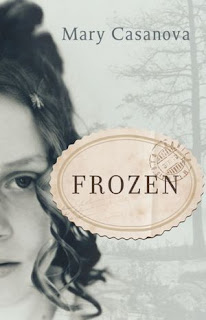Unhallowed Ground is a novella set in the 1890s in New England, telling the story of young Henry Feathering and his experience at Bittersweet Lodge. He first travels to the lodge when his sister dies and his uncle who resides there becomes his only living relative. On his way, he runs into the St. James siblings, Justice and Clemency who are visiting cousins that live in the same town. Henry falls in love with Clemency and intends to marry her. His uncle, however, seems averse to this idea.
I have to say that the first sixty or so pages of this novella are wonderful. They are written in a delightful style that has a real 1890s feel to it. There is the feeling of creeping darkness about Bittersweet Lodge, the worrying overtones that accompany Henry and Clemency's engagement. This whole sense of wrong that overhangs the whole story creates a great atmosphere that really keeps the reader going.
It's in the last five or so pages that the novella falls apart. Being a novella, Mills knew he only had so many pages to conclude this story he's been weaving. For whatever reason, however, it seems like it came out of nowhere to him. Strings and connections that the reader has been waiting make sit ignored in the corner while the climax becomes a confusing set a paragraphs that are hard to decipher. Even the narrator at the end admits that it feels like a bunch of puzzle pieces that have not come together. Each piece is very intriguing and interesting, they just never come together to create that perfect picture.
I really wanted to like this book and I definitely did for most of it. I'm just disappointed in the slapdash ending that seems a bit like a cop out. The painting, the death, the grave, the aunt, Clemency's behavior. All of it had the potential to be a story of tragedy and loss but instead it becomes a bit of a confused mess. I want more in my ghost stories or at least a ghost I can point to and know why.







